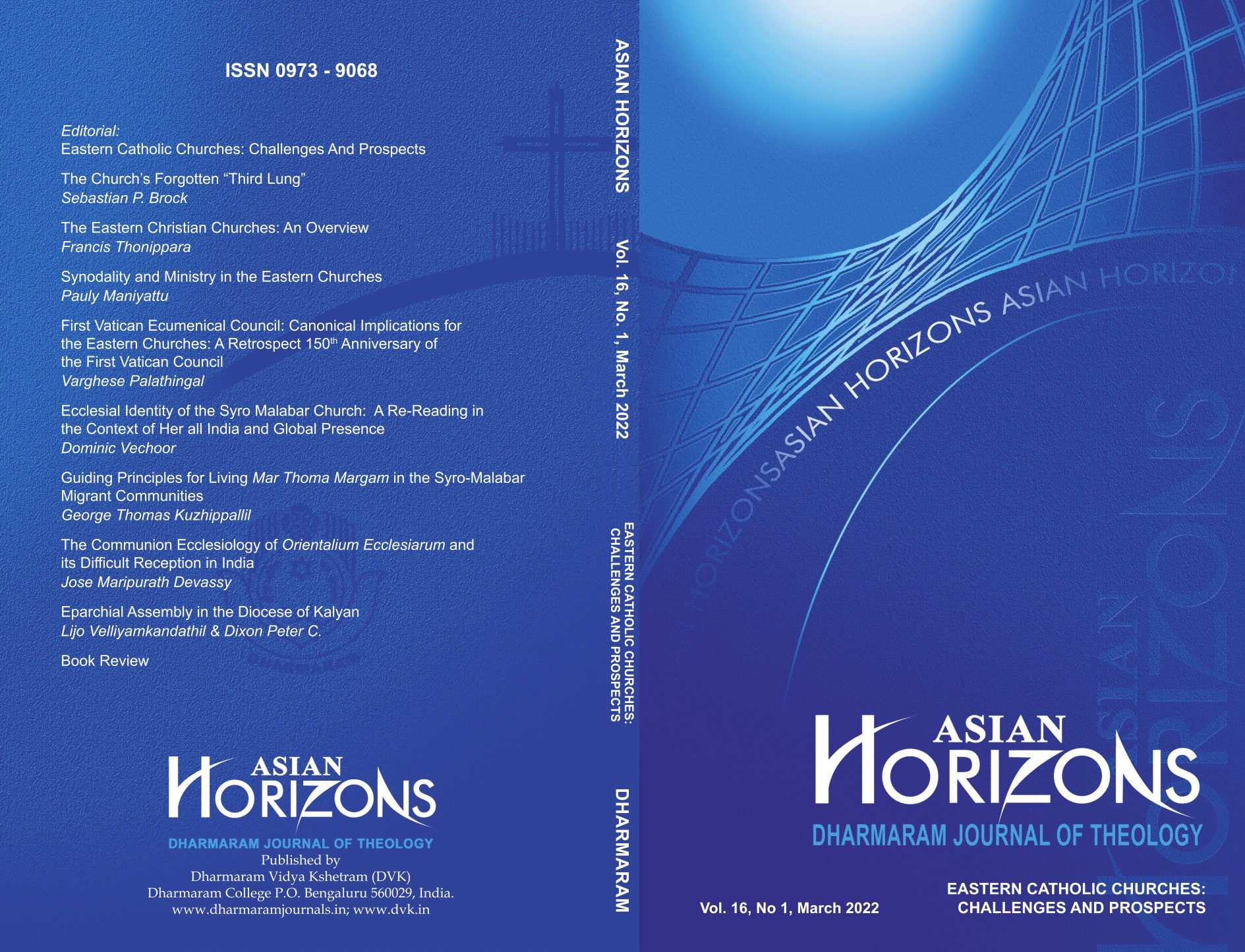The Communion Ecclesiology of Orientalium Ecclesiarum and its Difficult Reception in India
Keywords:
Communion Ecclesiology; Harmony; Inter-faith Relations; Mission; Pastoral CareAbstract
The decree on the Eastern Catholic Churches, Orientalium Ecclesiarum (OE), may seem like an unexpected way to address an important theme of the Second Vatican Council: communion ecclesiology. However, it does do so in a way that incorporates some of the Council’s ideas. It is true that the document has been criticized for its lack of Oriental identity, but the document contributes significantly to the idea of communication ecclesiology by pleading, especially in its opening paragraphs. This document seeks to establish how this decree has guided and continues to lead the Church in promoting the ecclesiology of the communion in India. The two important topics selected to make this point clear are the missionary and pastoral expansion of the Syro-Malabar Church and the formation and working of the Inter-Ecclesial Bishops’ Conference in India. While dealing with these topics, the paper will expose the difficult reception process that the Syro-Malabar Church faces to be faithful to this interesting theme of the Council. It is called a difficult reception because one can easily notice that this teaching of Vatican II was almost unacceptable for the Indian Church without some direct interventions from the Holy See.

